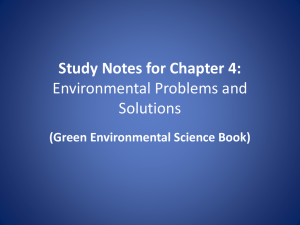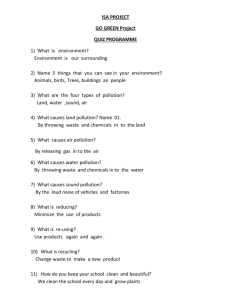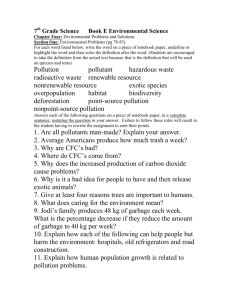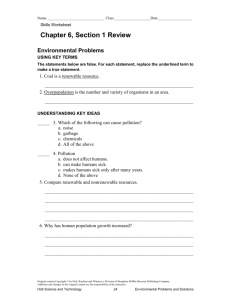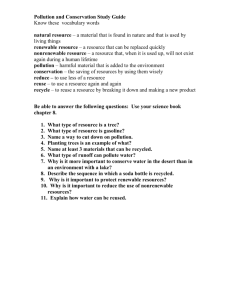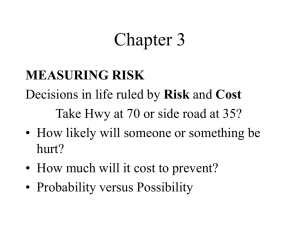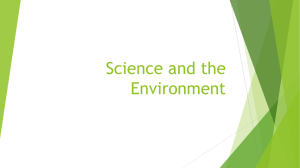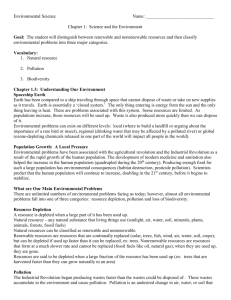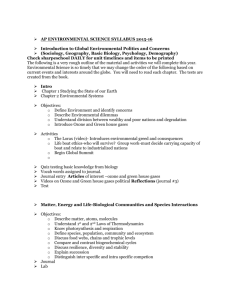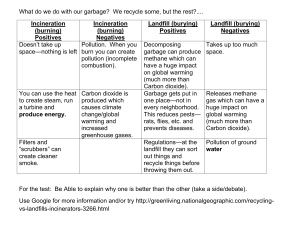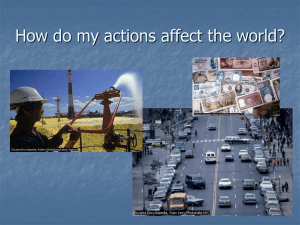Chapter 21 Environmental Problems and Solutions Name
advertisement
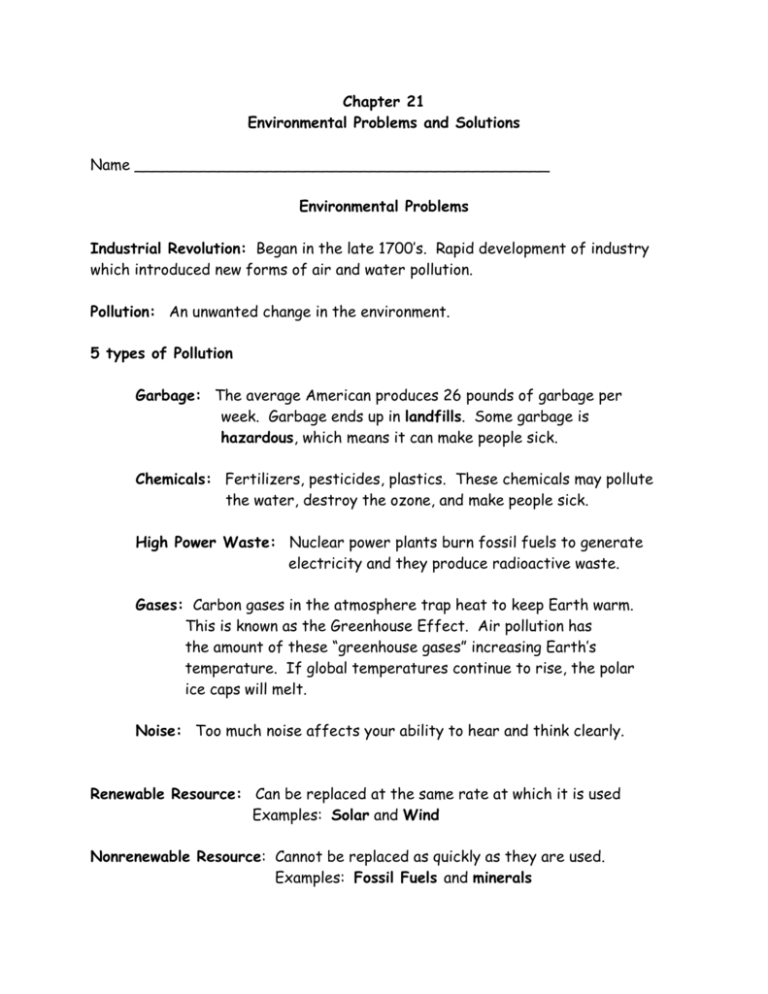
Chapter 21 Environmental Problems and Solutions Name ____________________________________________ Environmental Problems Industrial Revolution: Began in the late 1700’s. Rapid development of industry which introduced new forms of air and water pollution. Pollution: An unwanted change in the environment. 5 types of Pollution Garbage: The average American produces 26 pounds of garbage per week. Garbage ends up in landfills. Some garbage is hazardous, which means it can make people sick. Chemicals: Fertilizers, pesticides, plastics. These chemicals may pollute the water, destroy the ozone, and make people sick. High Power Waste: Nuclear power plants burn fossil fuels to generate electricity and they produce radioactive waste. Gases: Carbon gases in the atmosphere trap heat to keep Earth warm. This is known as the Greenhouse Effect. Air pollution has the amount of these “greenhouse gases” increasing Earth’s temperature. If global temperatures continue to rise, the polar ice caps will melt. Noise: Too much noise affects your ability to hear and think clearly. Renewable Resource: Can be replaced at the same rate at which it is used Examples: Solar and Wind Nonrenewable Resource: Cannot be replaced as quickly as they are used. Examples: Fossil Fuels and minerals Human Population Growth Advances in farming and medicine have allowed humans to overpopulate Habitat Destruction Deforestation: cutting down forests. Marine Habitats: are being destroyed by oil spills, plastics and chemical wastes. Environmental Solutions Conservation: The wise use of natural resources, especially those that are nonrenewable. The 3 R’s Reduce: Use less resources. Turn off the light when leaving the room. Reuse: To use an item again instead of throwing it away, like refilling a plastic water bottle. Recycle: Convert waste into a reusable material. Plastic water bottles can be converted into reusable shopping bags. Maintaining Biodiversity When biodiversity is low, the community is weak. When biodiversity is high, the community is stable. The Endangered Species Act protects endangered species from activities that could harm them. The act requires recovery programs like captive breeding. The Environmental Protection Agency (EPA) is a government organization that helps protect the environment. In order to protect individual species, we must protect and conserve their habitats!!!!
